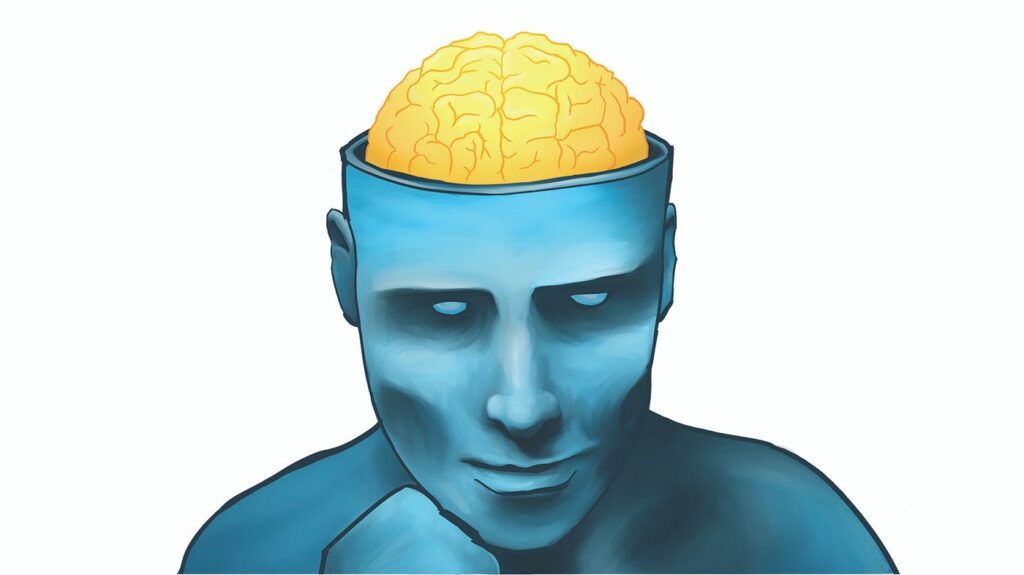How to be brilliant; Claude from authors; Daily Wire succumbs: Newsletter 21 August 2024

Newsletter 58: The five ways brilliant people are different, why St. Martin’s press isn’t doomed, and Kamala Harris’ — er Harris’s — er, hmm. Plus three books to read and three people to follow.
Five-fold brilliance
In our work, we sometimes encounter individuals who inspire us. They seem to have such creativity and clarity about our field that we cannot help but be dazzled. When a brilliant person is working with a team, problems seem easier to solve and solutions are not just fast and efficient, but outstanding.
From the outside, brilliance seems to just emerge. But meet enough brilliant people, and you’ll notice that brilliance in a given field includes five qualities:
- Experienced. The brilliant person has seen so many variations of the situations you may encounter that they can instantly recognize the problem your team is grappling with . . . and match that problem with the best solution.
- Observant. It’s not just about knowing. It’s about seeing. The brilliant person notices relevant details that enable the problem to be solved — or that might prevent it from being solved.
- Logical. At the heart of brilliance is logic. That means the brilliant person knows not just what the best solution might be, but why that solution works.
- Original. Workaday problem-solvers solve the same problems with the same solution. But the tough, oddball problems require a different approach. The brilliant person finds unique solutions based on their experience, extending the team’s knowledge beyond its well-trodden boundaries.
- Good at communicating. It’s not enough to know the answer. The brilliant person needs the rest of the team to understand and contribute to that answer. That means they must be able to explain what they’ve seen, clearly and with empathy, to help the team move forward. An otherwise brilliant worker who cannot communicate eventually becomes problematic.
Now the key question: can you train yourself to be brilliant? People think that creativity is an inborn quality, which might lead you to believe that there is no way to improve it. But you can develop all five of these qualities if you ask the right questions:
- To recognize problems more quickly, ask “Can I do another one?” Do repeated work in your area of expertise and carefully observe patterns and reasons why some solutions work and others don’t.
- To become observant, ask “What details matter?” What makes this problem different from others? What makes this solution workable? Look not only at the work you do, but at the work others around you do and the work you can admire in the broader world and ask “What made this work? Why is it great? Or why did it fail?”
- To become logical, ask “Why?” If you can connect cause and effect, you’ll begin to learn the chain of logic between problems and solutions.
- To become original, ask “What if?” How could this problem be different? How could this solution be different? What analogies are there to other problems in other fields? What solution might seem absurd — but might be brilliant?
- To become better at communicating, ask “Can I explain this?” Then write. Write about your solution — send an email or a post-meeting summary. You’ll often learn more about the solution as you try to explain it. And just as with anything else, you can get better at communicating by practicing.
Not everyone is destined to be brilliant. But brilliant people get plum assignments and rapid career growth. It’s a quality worth aspiring to, and it can be learned.
News for writers and others who think
The biggest grammatical divide since the Oxford comma is about to bust wide open: is the right possessive Harris’ or Harris’s? Walz’ or Walz’s? Style guides differ. Neither is wrong, but consistency is a bitch.
Three authors are suing AI firm Anthropic, makers of the application Claude. Their complaint suggests Anthropic was trained on and sometimes regurgitates authors’ work.
A group of influencers called “Readers for Accountability” has renewed its call to boycott major publisher St. Martin’s Press (subscriber link, Publisher’s Weekly) for racist and Islamophobic statements by a marketing employee. The latest offense: sending a promotional package that included a sex toy. This is likely to blow over: mainstream publishers often ruffle feathers, and boycotts hurt hundreds of authors that have nothing to do with the behavior of the publisher or its employees on one book or another.
Hard right outlet Daily Wire is shutting down its publishing arm. Opening a publisher these days is easy. Making one into a going concern is not. Scale matters.
Three books to read
The Web We Weave: Why We Must Reclaim the Internet from Moguls, Misanthropes, and Moral Panic by Jeff Jarvis (Basic Books, 2024). This always incisive observer of tech and journalism that argues that well-intentioned regulation of speech online almost always backfires.
The New Rules of Marketing & PR: How to Use Content Marketing, AI, Social Media, Podcasting, Video, and Newsjacking to Reach Buyers Directly by David Meerman Scott (Wiley, 2024). Newly revised, this 9th edition (!) has been updated with tips for AI and other modern technologies and tools.
The Chicago Manual of Style, 18th Edition by the editorial staff of the University o Chicago Press (University of Chicago Press, 2024). Be the first on your block with this essential update of the venerable CMOS and you too can win all your grammar and usage arguments.
Three people to follow
Diane Hessan is posting updates on LinkedIn from her unique panel of 500 voters across America. This is the intelligent and revealing stuff you won’t hear from poll-analyzers and pundits.
Juliana Casale , who is narrating her experience as a startup founder — not for tech, but for fizzy water.
🚲 Doug Haslam , veteran PR expert who’s seen it all.